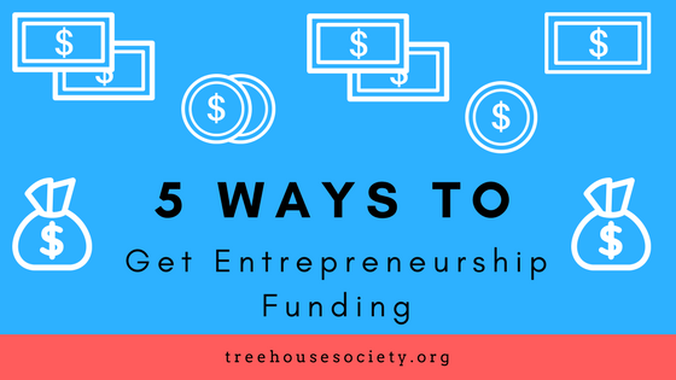|
Entrepreneurs work for years without return on revenue sometimes as product development and innovation takes time. They will need to seek elsewhere for funding for their entrepreneurial endeavor. Funding is the act of providing financial resources, usually in the form of money, or other values such as effort or time, to finance a need, program, project, or a business, usually by an organization or government. This word is used when a firm uses its internal reserves to satisfy its necessity for cash, while the term financing is used when the businesses acquire capital from external sources, Sources of funding include credit, venture capital, donations, grants, savings, subsidies, and taxes. When it comes to spearheading a successful business, the amount of money and sweat equity you put in it is equally as important as the amount of time for the services you provide in return. People often go to extreme measures to keep their business afloat. Some options being more realistic than others. Entrepreneurs with a business concept would want to accumulate all the necessary resources including capitals to venture into a market. Funding is part of the process, as some businesses would require substantial start-up amount that most individuals would not have. These startup funds are essential to kickstart a business idea, without it, entrepreneurs would not have the ability to carry out their concepts in the business world. 1. Begin with Bootstrapping Many entrepreneurs begin their business by "bootstrapping". This means financing a startup by scraping together any personal funds he/she can find. This typically includes savings account, credit cards, and any home equity lines you may have. In many cases, using the money you have instead of borrowing or raising from angel investors or venture capitalists is a great approach. In fact, some entrepreneurs continue to bootstrap until their business is profitable. This can be beneficial because the entrepreneur can focus on running his/her own business instead of trying to make monthly payment. They will still hold 100% of the company. But, if the business is trying to scale up quickly, it could be advantageous to bring in outside funding. So what happens when funds run out or if you decide you need something more? That will ultimately depend on the type of business you are building. Here is the famous Airbnb bootstrapping and creative funding approach. 2. Seek a bank loan or credit card line of credit. In general, banks normally don't lend to a new startup unless the founder's credit is exceptionally great, or existing assets that the founder is willing to put at risk for collateral. Credit card loan could be taken out for a startup, but usually not advised. According to 4-Hour Workweek, Tim Ferriss took a $5000 credit card debt to start his supplement company. 3. Friends and family. During a pitch night once, someone with a prestigious background and well connected family and friends came to pitch for $50,000. One of the investment banker asked her, "Why not just ask your friends and family for that amount given your background?" And she claimed that she had never thought of that. But sometimes, that is what a founder needs to do. Tape into his/her inner circle before expanding the horizons. Professional investors like to see real skin in the game of the founder and his or her family. 4. Venture capital Don't try this in the earlier stages. In fact, don't do it unless more than $1million funding is needed. VCs take their found of flesh in equity and control. It is not the most efficient route either. Prepare to spend a few months searching and closing the deal. Check out our related article about this. 5. Private Foundations This is like music to an entrepreneur's ears. Through individual donors, founders can gain access to funds without diluting the company or getting any involvement from the government. It is the most convenient way for most businesses, but of course, it is also really rare to find. There are so many ways to get funding started for a startup. Come into Treehouse Society and hear how other founders have got their business started! Related: How to Raise Venture Capital
1 Comment
|
Categories
All
|




